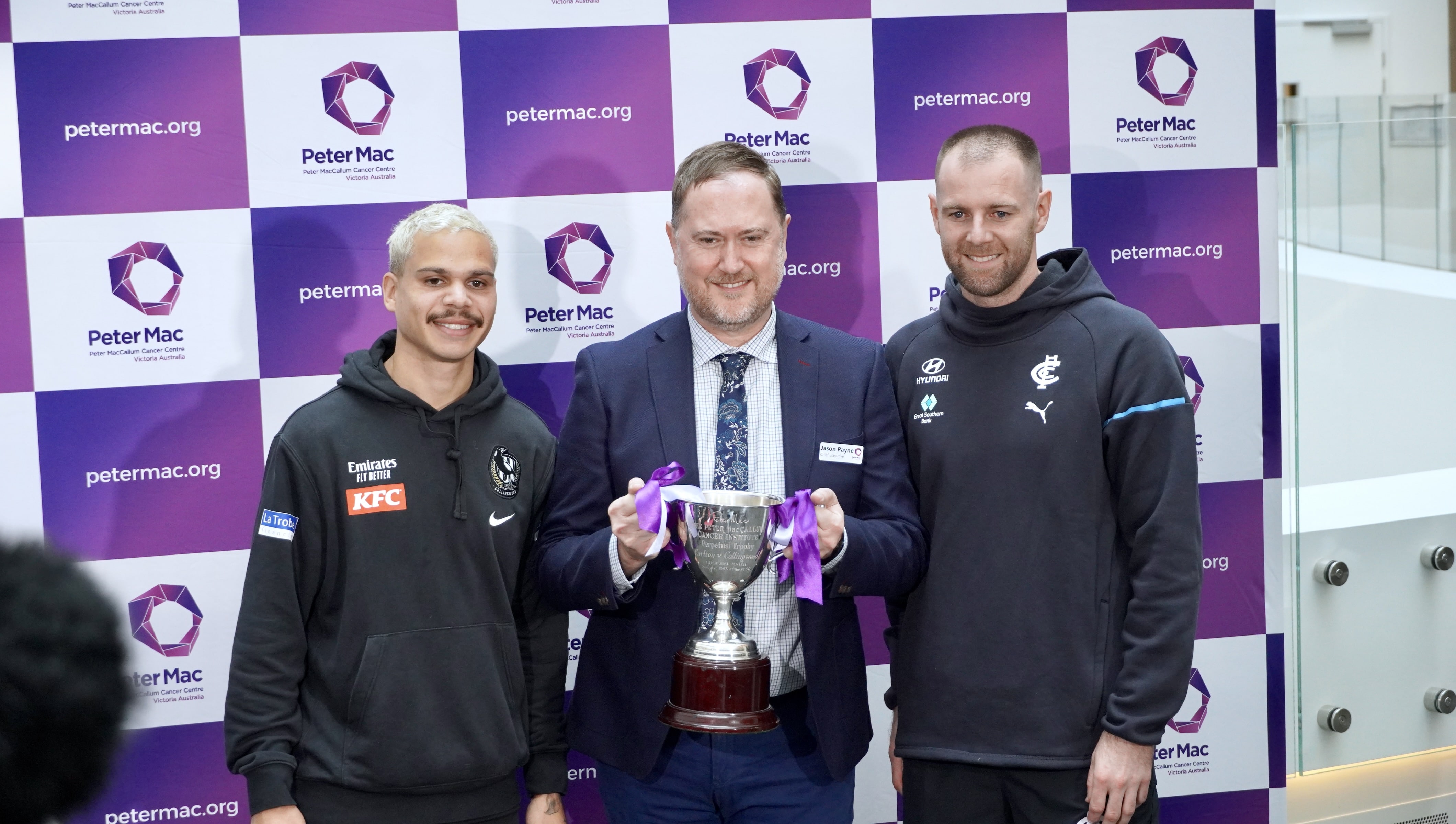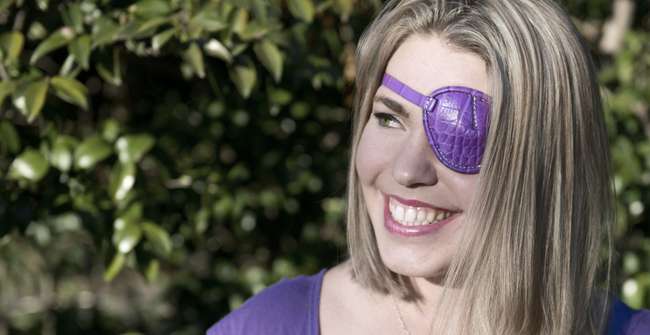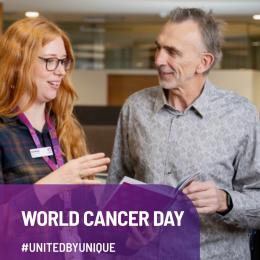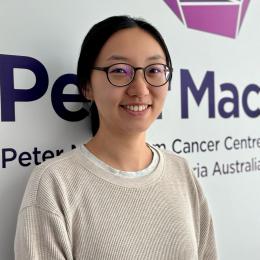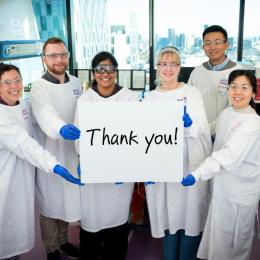Jess was diagnosed with a rare form of eye cancer
3 min read 31 August 2020
When Jess first came to Peter Mac, she had been diagnosed with a very rare and dangerous form of cancer – conjunctival ocular melanoma.
I was told I'd need to lose my eye or my life.
At just 21 years of age, Jess had to have her left eye removed, in the hope this would remove the cancer.
"At first I thought it was the worst thing that could happen to me. But then I realised that I’d been given a second chance."
"I decided to wear it like a battle scar."
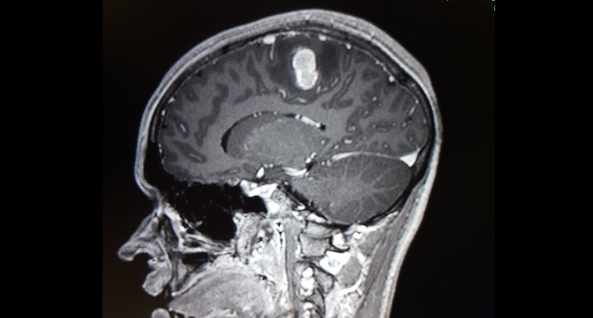
The worst was yet to come
Unfortunately, even after having her eye removed, there was still a chance the cancer may spread.
Seven months after her eye surgery, Jess was having a shower when she felt her toes begin to twitch. Then she began to shake and couldn’t speak or breathe. Her mother rushed in to find Jess having a seizure and slipping into an unconscious state.
The cancer had spread to her brain. Her only option was brain surgery.
There was a real risk that because of where the tumours were in her brain, she might lose movement in her right side, and especially her right leg.
The road back to standing and walking was long and difficult, but Jess was determined.
No matter how determined someone is though, it’s not enough on its own. The reality is that a cancer like Jess's could spread again at any time.

New research will save more lives
With rare cancers, identifying the right treatment is challenging because few people have these cancers and our understanding is limited.
But now, with breakthroughs in gene sequencing to identify the genetics of individual cancers and the advances being made treating cancer with immunotherapy, there is great potential for progress.
Professor Grant McArthur is a world-leading researcher in this field.
His team is focused on several research projects that will improve survival rates, including for rare cancers.
One exciting breakthrough has been the discovery of a new treatment option that prevents a tumour from evading a patient's natural immune response.

Another new technology is called single cell sequencing. Professor McArthur explains it as the ability to look at individual cells in the cancer, like the immune cells and the cancer cells, and analyse them one cell at a time.
Delving into individual cancer cells to find a genetic mutation or some other weakness could make the cancer more vulnerable, which opens up huge possibilities for treatment.
For people with rare and complex cancers, this is a beacon of hope.
“At Peter Mac there is the necessary focus on research and innovation, coupled with having really high-level expertise in cancer care," says Prof McArthur.
This means patients with rare cancers get the very best outcomes.
Jess's big news
Jess made a full recovery after her surgery, although her rehab was long and difficult. She decided to make a feature of her new appearance with some fun eye patches, and wears them with pride.
Jess has now been three years cancer-free, and she recently shared with us wonderful news that she is engaged to her partner Sean.
Jess is aware that without recent cancer research breakthroughs, her diagnosis may have been terminal.
Peter Mac is at the forefront of cancer research and they have given me a second chance.
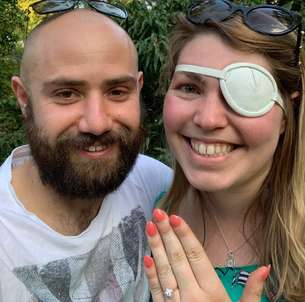
Ongoing research is essential for finding the next breakthrough, that will lead to better treatments for all cancers, and save more lives.
@Follow us on Instagram (@SupportPeterMac)

